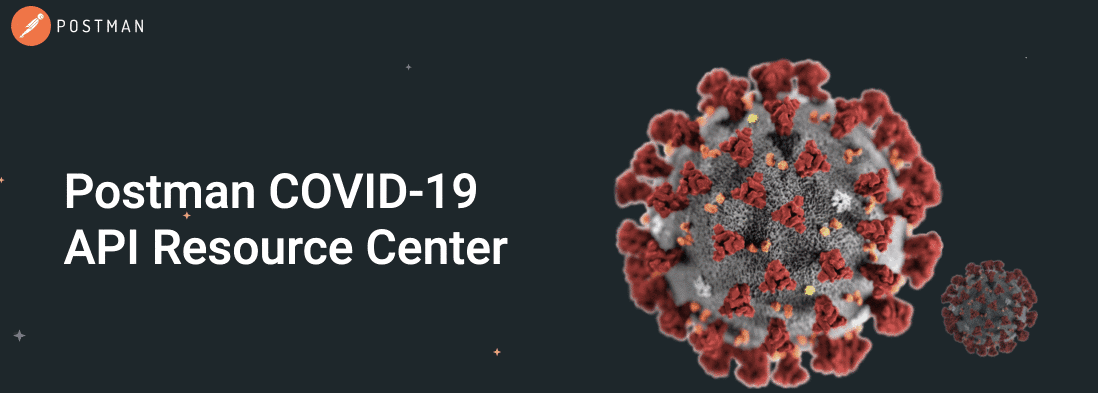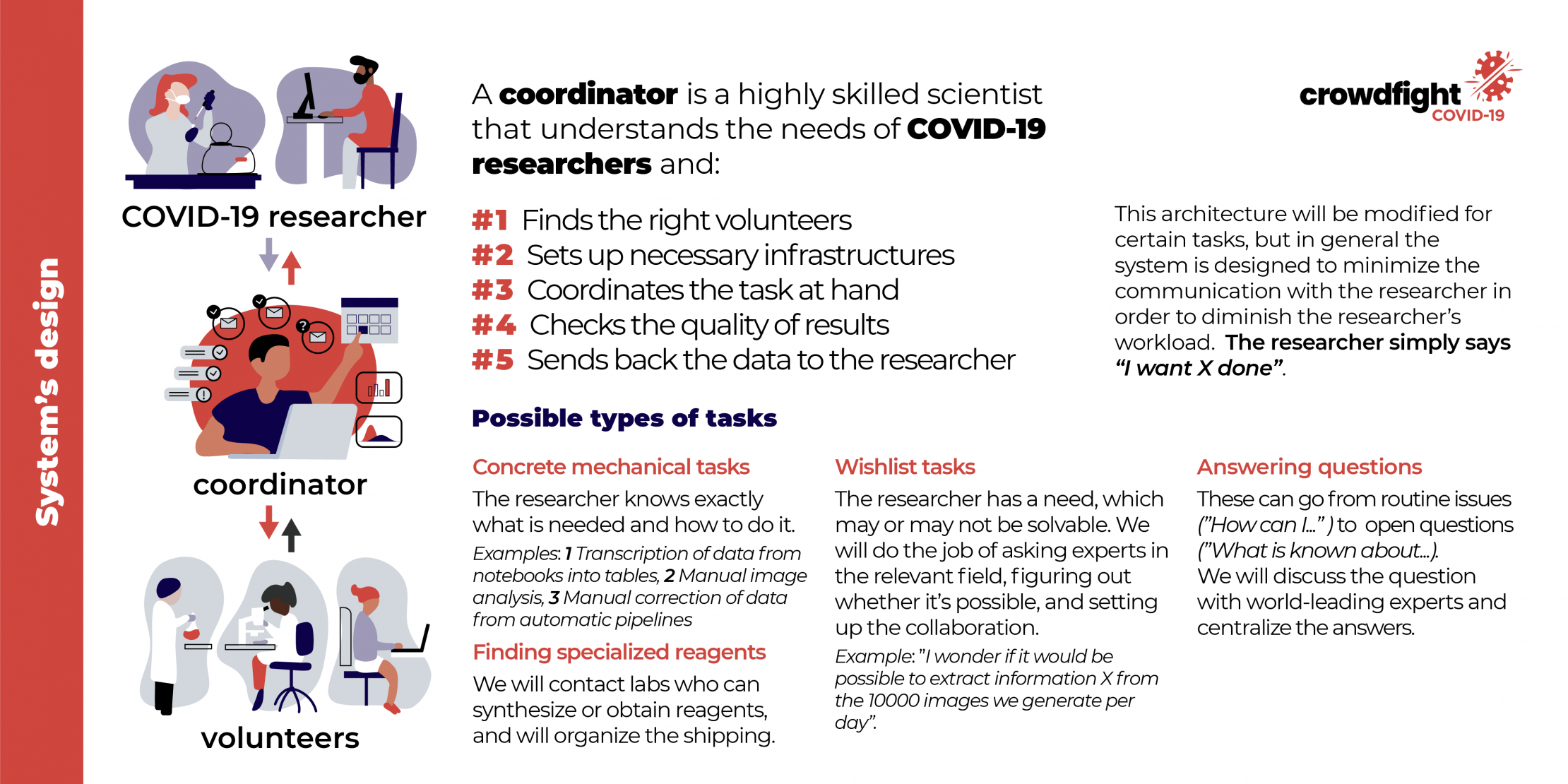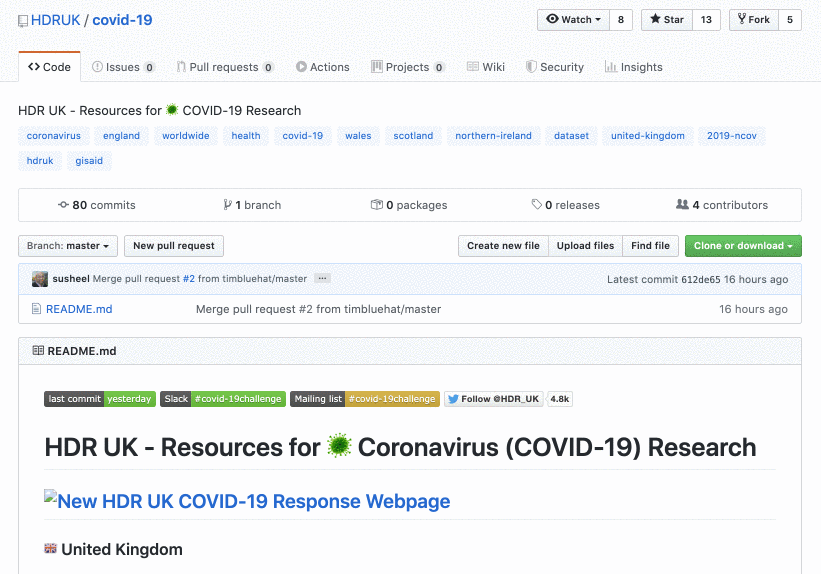Week 2: Calling All Researchers to Fight COVID-19 with Open Science

At Lifebit, we are closely involved in the scientific community and the almost daily evolving COVID-19 developments. Our team is actively engaged in accessing a growing number of valuable resources for researchers and organizations, covering various aspects such as epidemiology, vaccine development, diagnosis, viral sequencing, and genomics. This comprehensive approach ensures that we stay at the forefront of the fight against the pandemic. Our commitment to open science for pandemic response is evident in our ongoing efforts to provide and enhance these valuable resources.
In this crucial phase of the pandemic, we are publishing the second installment of our curated COVID-19 resources. This collection aims to provide our readers, clients, and partners with the latest tools and developments emerging from the frontlines of pandemic research. By sharing this information, we hope to enable every individual and organization to contribute their time and expertise in combating this global crisis, particularly through the lens of open science for pandemic response.
In case you missed it, here is our first instalment of curated COVID-19 resources!
Data Resources
The Importance of Open Science for Pandemic Response
Sequence Read Archive SARS-CoV-2 Sequences
The Sequence Read Archive (SRA) dataset is a comprehensive collection of viral sequence data for SARS-CoV-2. It includes all Next Generation Sequencing (NGS) runs for SARS-CoV-2, associated metadata, and the virus reference genome. This dataset contains over 25GB of raw sequence data from 13 distinct projects and more than 300 FASTQ files. By making this data publicly available, we aim to support extensive research efforts and facilitate a better understanding of the virus’s evolution and transmission patterns.
To further accelerate progress and assist researchers globally in their battle against COVID-19, Lifebit has made the SARS-CoV-2 dataset freely accessible through Lifebit CloudOS. Accessing this critical data is essential for advancing research and developing innovative solutions. For more information, check out our SARS-CoV-2 datasheet and the complete list of available files, which provide detailed instructions on how to access this data through Lifebit CloudOS.

Postman COVID-19 API Resource Centre
Accessing data in real time is essential when facing a mounting crisis like we are currently going through. Application Programming Interfaces (APIs) enable real time information exchange, and allow researchers to programmatically access essential data, which is extremely useful for researchers who would like to perform big scale analyses with available COVID-19 data.
Postman, a collaboration platform for API development, shares API collections to help in the COVID-19 fight, including but not limited to:
- Centres for Disease Control and Prevention (CDC)
- European Centre for Disease Prevention and Control (ECDC)
- NovelCOVID API
- CDC Cases & Deaths and CDC Testing (ScrAPI)

COVID-19 Research Communities & Challenges
Crowdfight COVID-19
There is a massive pool of highly-skilled scientists working from home and willing to volunteer their time and expertise for the COVID-19 cause. The Crowdfight COVID-19 initiative helps scientists look for help and bring them together to work on COVID-19 research.
Researchers simply state their wish or task in a few lines through the request form, and Crowdfight COVID-19 coordinators will identify scientists from the volunteer pool who can fulfil those requests.
Interested individuals can also subscribe to Crowdfight COVID-19’s task-distribution mailing list to receive periodic emails with descriptions of tasks that need to be completed.
The Role of Data-driven Approaches in Fighting COVID-19
COVID-19 Research Database
The COVID-19 Research Database serves as a centralized hub for accessing research articles, data sets, and findings related to COVID-19. This platform allows researchers to share their work, collaborate with others, and stay updated on the latest developments in the field. By utilizing a shared database, the scientific community can enhance collaboration and ensure that important findings are disseminated widely.
Data-driven approaches have become indispensable in the fight against COVID-19. By leveraging vast amounts of data available through various sources, researchers can identify trends, track virus mutations, and assess the effectiveness of interventions. The integration of data science techniques with traditional research methodologies has led to accelerated insights that can inform public health policies and strategies.

Health Data Research UK COVID-19 Initiative
Health Data Research UK (HDRUK) is mobilising talent and partnerships across the United Kingdom to:
- Coordinate and connect national data science driven research efforts related to COVID-19
- Accelerate access to UK-wide priority data relevant to COVID-19 for research, and
- Leverage the UK’s health data science capability to address the wider impact of the COVID-19 pandemic.
For researchers interested in getting involved, HDRUK has created a COVID-19 Knowledge + Skills Matchmaker which is a sharing space for expertise and experience. This resource also has a forum allowing researchers to post queries which might need input from the greater scientific community.

Let’s keep the conversation going – please share with us any COVID-19 resources that you have found valuable. We will continue to update our readers and followers regularly. Together, we can champion the cause of open science for pandemic response, ensuring that we are better equipped for the challenges that lie ahead.
Encouraging Public Participation in COVID-19 Research
Public participation is vital in advancing COVID-19 research. Initiatives that encourage citizens to share their experiences, symptoms, and personal data can provide researchers with invaluable insights into the virus’s effects on different populations. By fostering a culture of open sharing, we can improve overall understanding and contribute to the development of effective vaccines and treatment protocols.
Future Directions for Open Science in Pandemic Response
As we move forward, the importance of open science for pandemic response cannot be overstated. Future efforts should focus on strengthening collaboration between researchers across disciplines and sectors. This will ensure that diverse perspectives are considered in the fight against future pandemics. By continuing to advocate for open access to data and resources, we can build a more resilient global scientific community that is better prepared to respond to health crises.

